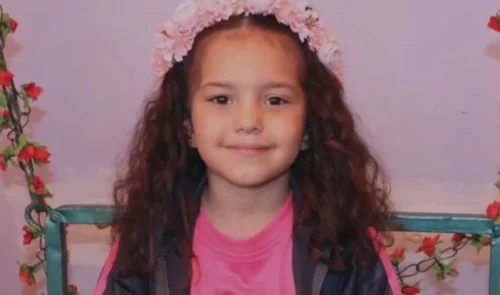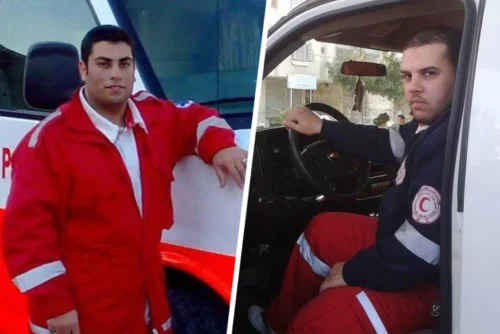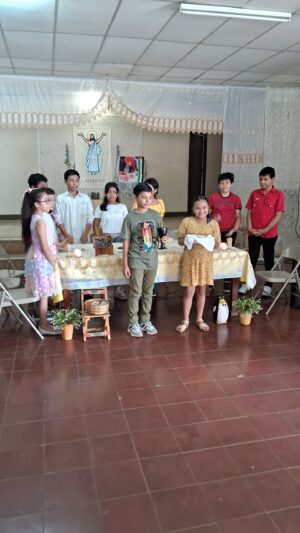 Not one to enter discussion on the cultural relevance of television shows often, it is hard to miss the fervour surrounding Netflix’s Adolescence, which recounts the dramatized events surrounding the investigation of a brutal teenage murder of a young female by the protagonist Jamie, a 13-year-old boy. Not wishing to belabour the extent analysis on this drama, it is striking the level of psychological analysis – levied by both psychologists and non-psychologist alike — which permeates the broad discourse and stark warnings for the future of teens worldwide. The show certainly portrays the complexity, even turbulence, associated with this period of development, showcasing the confused, exploratory, contradictory, emotive, and essential nature of peer-relationships core to this epoch. However, in doing so it also risks essentialising classical stereotyped conceptualisations of adolescence now replete in vernacular and vocational use of psychological language. One could also ask whether any of the characteristics I have just nominated are restricted to the adolescent, or in truth also capable of naming adult behaviours also? The idea of adolescence as a period of tumultuousness traces a lineage of developmental psychology back to the start of the 20th century, where Stanley Hall coined the construct of ‘storm and stress’ to describe the ostensible reality of adolescent development. In his large volumes on the matter, he writes that:
Not one to enter discussion on the cultural relevance of television shows often, it is hard to miss the fervour surrounding Netflix’s Adolescence, which recounts the dramatized events surrounding the investigation of a brutal teenage murder of a young female by the protagonist Jamie, a 13-year-old boy. Not wishing to belabour the extent analysis on this drama, it is striking the level of psychological analysis – levied by both psychologists and non-psychologist alike — which permeates the broad discourse and stark warnings for the future of teens worldwide. The show certainly portrays the complexity, even turbulence, associated with this period of development, showcasing the confused, exploratory, contradictory, emotive, and essential nature of peer-relationships core to this epoch. However, in doing so it also risks essentialising classical stereotyped conceptualisations of adolescence now replete in vernacular and vocational use of psychological language. One could also ask whether any of the characteristics I have just nominated are restricted to the adolescent, or in truth also capable of naming adult behaviours also? The idea of adolescence as a period of tumultuousness traces a lineage of developmental psychology back to the start of the 20th century, where Stanley Hall coined the construct of ‘storm and stress’ to describe the ostensible reality of adolescent development. In his large volumes on the matter, he writes that:
Adolescence is a new birth, for the higher and more completely human traits are now born. The qualities of body and soul that now emerge are far newer. The child comes from and harks back to a remoter past; the adolescent is neo-atavistic, and in him the later acquisitions of the race slowly become prepotent. Development is less gradual and more saltatory, suggestive of some ancient period of storm and stress when old moorings were broken and a higher level attained1
The consequence of this theory remains with us today, where colloquial understandings of adolescence evoke images of angry, disobedient, stressful, conflicted images of the contemporary teenager, now, arguably, augmented by the fallout of social analyses of the present Netflix show and of course represented within the fictionalised telling on Netflix.
An often undiscussed yet remarkably salient feature of developmental psychology, as well as general psychology for that matter, is the historical roots of this mode of inquiry and its evolution towards the status of a ‘science’. Studying a typical psychology degree, as I have, one would be under the impression of the field’s scientific standing, having evolved from a steady progress of empirical knowledge production, theorisation by notable individuals such as Jean Piaget and Eric Eriksson, collation of large scale observational and quantified data on adolescent maturation, and the visualisation of a notion of normally expected developmental trajectories for the adolescent, both male and female alike. I’ll bypass the dime store reduction of constructs of sex and gender replete in psychological research momentarily and for the purposes of this contribution.
Reading some of the articles that the show has stimulated, such as a piece in the Conversation by Martina Calçada Kohatsu, reveals a number of developmentally infused warnings surrounding the negative impact of technology on the maturing adolescent brain, ultimately beleeing the inability to understand and interrogate the broader patriarchal and toxic masculine forces at play. Although Kohatsu ultimately points towards the importance of parent-child relationality; an undoubtedly important focus, other insertions into the debate, such as Niamh Delmar, a counselling psychologist in Ireland, excoriate the affordance of mobile phones in schools and advance a tacit necessity for close adult guidance to avoid ‘adultification’ (her words).
Now, risking the associated obloquy, I’m sure I can’t be the only one that can see the essentialising politics at the core of some of these positions, which construct the intractability of the adolescent psyche with these larger social forces and hence justifying, for many, the calls for mobile phone bans in school and depoliticising educational spaces. Reminiscent of a Kafka-like absurdity where we can pretend that by ignoring these broader sociopolitics in our classrooms, children will be spared the anguish of the wider society. Apart from the obvious negation of adolescent agency in these assumptions — as if banning the technology deals with the fact that the social worlds of teenagers today straddle an increasingly complex assemblage of virtual and physical spaces — the notion of developmentally appropriate measures of ‘managing’ adolescence relies on a supposed scientific understanding of the psychological growth of the ‘normal’ adolescent male. However, in order for this strategy to be robustly defended, one would have to demonstrate that psychology itself developed in a sociohistorical context that allowed for a neutral or depoliticised conceptualisation of this form of social science. I hate to break it to you, the reader, and must admit if you are what I term a ‘mainstream’ psychologist, especially with an educational specialism, I’m somewhat less concerned about the feathers which may be ruffled, but this cannot be further from the case. Kingsley Amis once said, I think, that “If you can’t annoy somebody with what you write, I think there’s little point in writing”, so I will, if you allow me, continue my disruption.
While of course in writing this piece I do not have space to do justice to a comprehensive telling of the historical developments of psychology or developmental psychology as a specialism, taking the period of adolescent development and its sociohistorical founding as a subject of inquiry, deserves a short commentary. It is not a simple feat to isolate the causal historic mechanisms by which this field of science emerges, an initial assumption from which we must proceed is that no matter the specific field of scientific endeavour we are concerned with, all fields of inquiry emanate from a particular assembly of social, cultural and political forces and of course a convocation — and/or synod in some cases — of people. During the emergence of the psychology of development, Stanley Hall and his book Adolescence, as I alluded to earlier, is a particularly salient influence on how we conceptualise this developmental period today. Of interest to me is the manner in which Hall achieved a remarkable act of synthesis where he layered the notion of the adolescent psyche upon biological and evolutionary ideas of the time. In an enormous metaphorical splicing, Hall writes that:
While his bodily form is comparatively stable, his soul is in a transition stage, and all that we call progress is more and more rapid. Old moorings are constantly broken adaptive plasticity to new environments—somatic, economic, industrial, social, moral and religious—was never so great; and in the changes which we hope are on the whole truly progressive, more and more human traits are too partially acquired to be permanently inherited. All this suggests that man is not a permanent type but an organism in a very active stage of evolution toward a more permanent form.2
In this master stroke is claimed the development of adolescents is key to forming the appropriate trajectory for the entirety of masculine (perhaps human) progress.
In Gabrielle Owen’s, A Queer History of Adolescence, she writes that the theories of Hall effect both an objectification of adolescence and a recall to the logics of recapitulation theory – itself thoroughly discredited in biology at the time3. Ernest Haeckel developed the theory of recapitulation most extensively in his “Biogenetic Law of 1866” and in arguing that embryonic development (ontogeny) mimics the evolutionary history of a species (phylogeny), effectively imposed an idea of ‘time as progress’ onto the idea of development. The reverberations of Hall’s move to socialise recapitulation theory meant that development, as a psychological construct, began to be tacitly associated with a directional and linear form of progress. Moreover, this recapitulative objectification of adolescence, along with childhood, facilitated the elevation of this period of human development as a vessel for the adult hopes and desires of humankind. Of course, saying all of this is not intended to avoid the obvious racial inflections in Hall’s theory, which as Owen reminds exacts an ideologically interdependent construction of progress with whiteness4. Take Hall’s words once again:
Along with the sense of the immense importance of further coordinating childhood and youth with the development of the race, has grown the conviction that only here can we hope to find true norms against the tendencies to precocity in home, school, church, and civilization generally, and also to establish criteria by which to both diagnose and measure arrest and retardation in the individual and the race.5
We see in Hall’s work not only the preponderance of concerns for the race and establishment of normalities from which to measure deviations, but also an urge to effect some form of control over the pace at which certain characteristics emerge. These logics of surveillance and control are perhaps connected to Hall’s arguments for a prolonged period of adolescence, reflective of the phylogenic distension of developmental epochs. This he argues in comparative analyses of the ‘savage’:
Indeed, the boy of ten or eleven is tolerably well adjusted to the environment of savage life in a warm country where he could readily live independently of his parents, discharging all the functions necessary to his personal life, but lacking only the reproductive function. In his instincts, amusements, and associations, his adjustment to such an environment is quite stable; his activity is at its greatest both in amount and variety, as studies to be later considered show. We shall later also see in how many of his ways he resembles the savage and how each furnishes the key for understanding both the good and bad points in the other’s character6
Here Hall asserts the advanced status of the white European in comparing the developmental superiority of white male children to that of indigenous peoples, stating outright that such a child/early adolescent would be more than capable of thriving in such a society. For those of us that direct a critical eye on the field of psychology, this implicit whiteness of theory is no surprise when we consider the extremely narrow range of diversity attributed to the majority of research samples throughout the field — predominantly comprising participants from Western, Educated, Industrialised, Rich and Democratic contexts. At a minimum, I trust that we can agree such research is not capable of universal status, and, I hope, that we might start observing the racist and colonial constructions inherent within this field of inquiry, as is the case in many fields of study. The point is that professing psychological knowledge as objective does not bear out — Quamvis dicas, non fit.
Adolescence — the Netflix show — in many ways showcases some important forces at play within an adolescent male’s lifeworld, albeit within a dramatized and extreme fictional account. The portrayal of engagement with various social media outlets, the codified use of pictorials in vernacular forms of communication, and out of touch adults are naturally quite easily relatable for many. However, the discussions that have followed have largely emphasised what I term as a ‘childish adolescence’ where adolescent boys must be saved from themselves and ultimately kept from the influence of the Andrew Tates of the worldvii. This is, as I have emphasised earlier, not a new feature of the ‘adult’ treatment of adolescence, the developmental period. Adolescence, and childhood for that matter, fulfil a function for the adult world of discourse and that is somewhat of a vessel, or even dumping ground, for the fears of society — after all, this period will determine “the future of humanity”. In this way it operates as a repository for a great deal of undeserving suspicion and the treatment of the adolescent male, in the context of this article, as inherently incapable of advocating or realising their best interests. What a dehumanising thought. Moreover, and I can confirm a keen-eyed scan of some social media threads on this matter will reveal, the Netflix series has become a target for right-wing actors and their attendant hate. This has not been helped by the show’s actor Stephen Graham’s assertion that the reason the show has sparked such interest is due to its “representation of a normal family”. This simultaneously normalises the notion of white middle-class family units as a datum but also aligns with both the psychological and capitalist beacon of the (white) nuclear family as the referent for normality. The comments observed from right-wing and conservative discourses, across various platforms, reveals a depositing of anti-immigrant fears veiled within a delusional narrative of discrimination against white people. In this way, and not by any means a novel occurence, adolescence, the developmental construct, can be included among those receptacles for right wing and conservative ire, similar to Judith Butler’s observations regarding the use of the concept of ‘gender’ within a larger “phantasm” exculpated in her latest book, Gender Trouble.
Clearly this is not an argument for discounting the behaviours, context and sociocultural phenomena on show in the Netfilx show, which capture a great deal of complexity about adolescent lives and do indeed provide some stimuli for productive discussions. However, let us not kid ourselves that these issues are confined to the adolescent. Instead let us critically reflect upon the social and political motives infused within psychological theorising around this developmental period, resist a dehumanising and deficit treatment of this age as suspect, and consider the very real normality of gender-based violence and patriarchal domination, replete within the capitalist worldview. I mean has anyone actually thought to ask the adolescent male community if they can resonate with the series? I think you will find that the supposedly expert discourse thus far, has not.
ENDNOTES:
1 Hall, Adolescence, xiii
2 —, Adolescence, vii
3 Owens, A Queer History of Adolescence, 51
4 —, A Queer History of Adolescence, 52
6 Hall, Adolescence, 44
7 To be clear, I am not arguing that the focus on ‘incel’ culture and toxic masculinity rampant across the world currently is not of concern or should not be taken seriously, my position instead focuses on the suspect nature with which the idea of adolescence and adolescent self-knowledge is often treated.
This post was originally published on Dissident Voice.






















